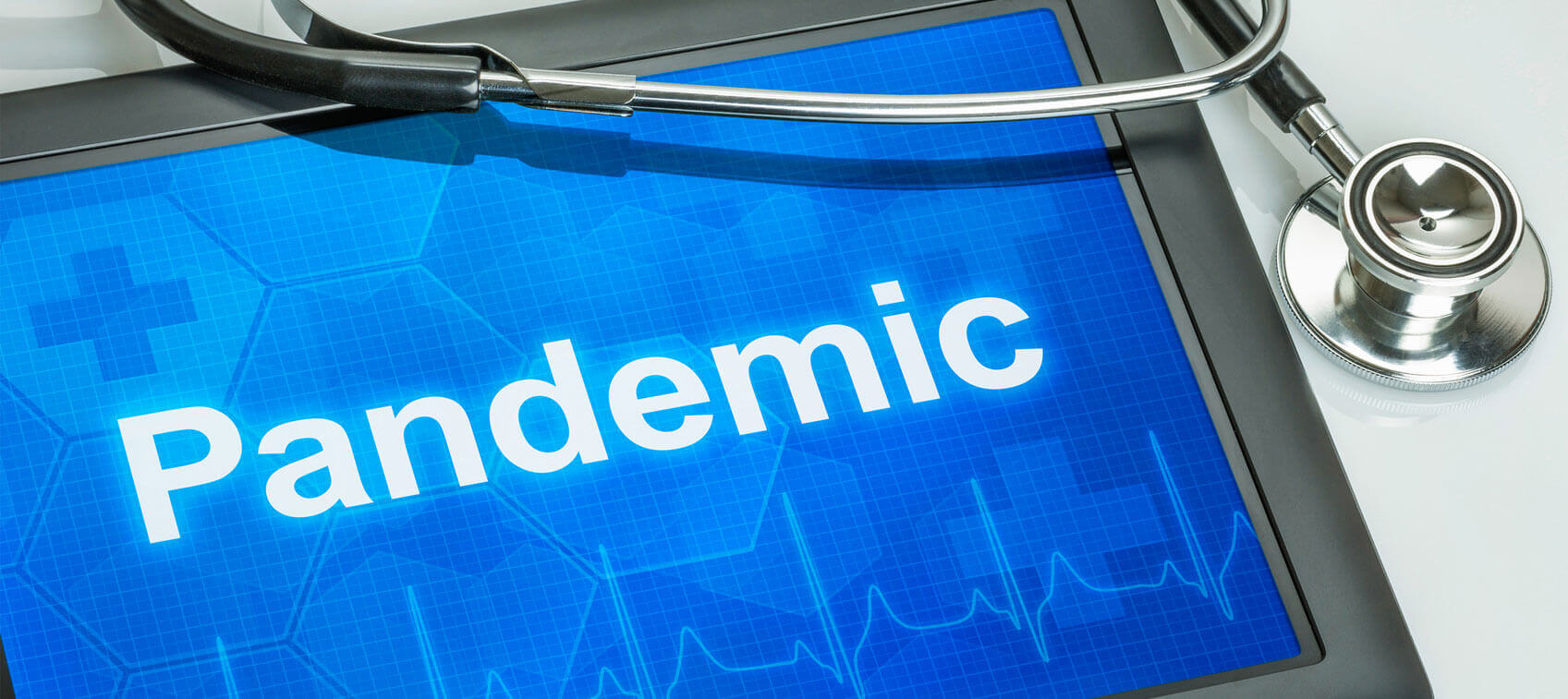
UPDATE: On March 11, 2020, the World Health Organization declared COVID-19 (coronavirus) a pandemic.
I’ve been writing about the dangers of a worldwide pandemic for at least two decades, and have warned many times in the past that it’s not a matter of if a pandemic will happen, but rather when. With the emergence of the coronavirus (COVID-19), we are unfortunately on the brink of a serious, potentially worldwide health threat.
Even with the very real possibility of a coronavirus pandemic affecting many countries, including the US, the good news is that there’s a lot you can do to prepare yourself. My general recommendations on what you need to have on hand for possible emergencies have pretty much remained the same over the decades, but here are some additional suggestions for the potential coronavirus pandemic.
Prevention Is Top Priority
If a coronavirus pandemic (or any other viral outbreak) develops in your area, it’s important to isolate yourself and your family from the general population. Viruses spread primarily through physical contact or bodily fluids (saliva droplets, blood, feces, mucus, etc.).
Have a 3-Month Supply of Necessities
Remaining in isolation requires having adequate food and water supplies. At best, most people these days might be able to scrounge around the pantry and freezer and make do for a week or so. But I think a one-month supply should be the minimum, and three months would be even better.
Remember, food and water aren’t the only “necessities.” You don’t want to run out of toilet paper, soap, disinfectants, chlorine bleach, toothpaste, personal care products, vitamins, and any necessary medications. If you require specific medications, try to have at least a 3-month supply on hand.
Currently, over 80 percent of all medications used in this country are being manufactured in China. Even scarier, 98 percent of all antibiotics sold in the US come from China. Also, 80–90 percent of the vitamin C and 60 percent of other dietary supplement ingredients are imported from China.
Consider a Respirator
If a full-blown coronavirus pandemic materializes, it may be too late to stock up on personal respirators/face masks, since most of the production in this country is being sent to China and prices have skyrocketed. But these are certainly handy (and recommended) if you have to come out of isolation.
Respirators are percentage-rated based on how well they filter out airborne particles (bacteria and viruses are particles and can be filtered in this manner). The common scale is from 95 to 100. A mask with a 95 rating is adequate for bacteria and viruses.
They also have either an “N,” “R,” or “P” rating. This has to do with their resistance to being degraded by oil, since these masks are often used in industrial settings. (“N” is not resistant to oil, “R” is somewhat resistant, and “P” is oil proof.) Masks rated N-95, N-99 and N-100 are fine.
Also of note, most masks are too large for children. The company 3M, the primary manufacturer of these masks, makes a model #8110S that seems to fit most toddlers. N-95 masks aren’t made for continuous, long-term use. For heavier duty use, I like North respirators, especially the 7700 or 5500 models with replaceable filter cartridges.
Coronavirus Treatment
If it’s past the point of prevention and you or a loved one has contracted the coronavirus, here are some of the things you can do to fight the infection.
- AHCC (active hexose correlated compound), sold as the product ImmPower. I consider this a “must have” product in a pandemic situation. Several studies have shown that AHCC is a potent compound that can help knock out various flu and other viruses. And clinical studies have shown its ability to significantly enhance both the activity and the number of natural killer (NK) cells in the immune system. It has been tested and proven effective in boosting NK cell activity as much as 300 percent, immune T cells by 200 percent, and B cells by 250 percent. It takes one gram a day to increase NK activity significantly in four weeks, so at the first signs of an infection I suggest starting at 5–10 grams for a week and then tapering back to 1–2 grams thereafter.
- Elderberry extract: One-half to one teaspoon every three or four hours
- Xylitol nasal wash: Used three or four times daily
- Eucalyptus oil: Eucalyptus can be amazing when used in a room vaporizer or placed on a tissue and pinned to the pillowcase or a t-shirt worn at night.
- Raise glutathione levels: Glutathione levels have been shown to be an accurate predictor of survival and longevity. It has this reputation not just because it’s the body’s most important antioxidant, but it is the key component needed to detoxify environmental and pathogen-generated toxins. It’s also necessary for the production of the immune system’s NK cells. When glutathione levels are low, NK cell activity is low. The easiest and cheapest way to increase glutathione is to consume whey protein. Its gamma-glutamylcysteine is converted to glutathione in the body. Glutathione levels can also be increased by taking the amino acid cysteine (in the form of N-acetylcysteine) and by consuming more cruciferous vegetables and avocados.
- Vitamin C: Take orally to bowel tolerance. Start with 1,000 mg per hour and gradually increase that amount until the bowels become loose. Then maintain that amount or decrease it slightly until the bowels normalize. During infections, being able to tolerate up to 20 grams daily isn’t unusual. Look for bulk vitamin C powder as either ascorbic acid or sodium ascorbate.
- Vitamin D: Take 25,000–50,000 IU per day for several days. High-potency vitamin D is not sold by many companies but there are some manufacturers that make 10,000 IU tablets. Personally, I use the D3-50 product by Bio-Tech-Pharm, which has 50,000 IU in a single dose.
- Selenium: 200–400 mcg per day. Supplements are readily available, and good food sources are garlic and Brazil nuts.
- Diamond V XPC powder is an animal feed product that probably could be called the “poor man’s” proven immune booster. It is sold in 1 lb. and smaller bags from places like Penn Herb Co. LTD. It’s a bargain at a daily dose of 3 grams a day.
- Food-grade hydrogen peroxide: Learn more here.


